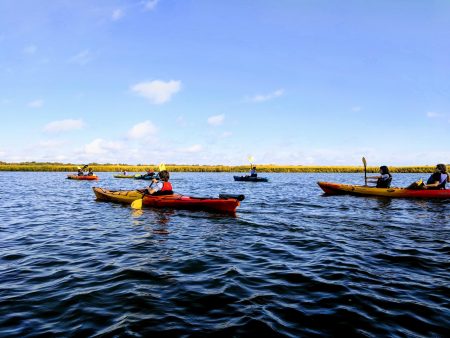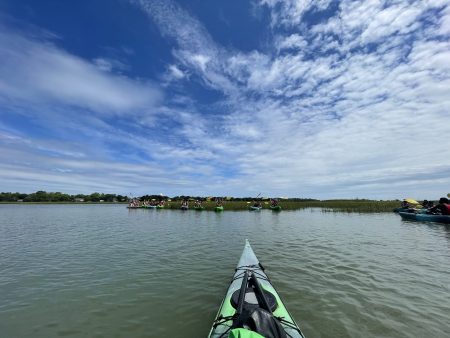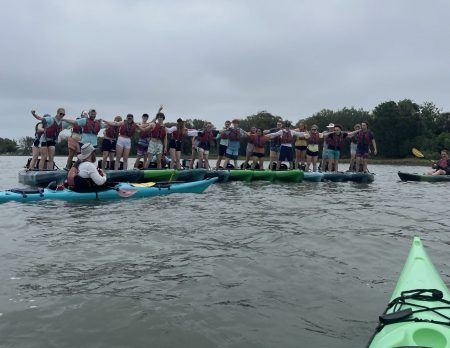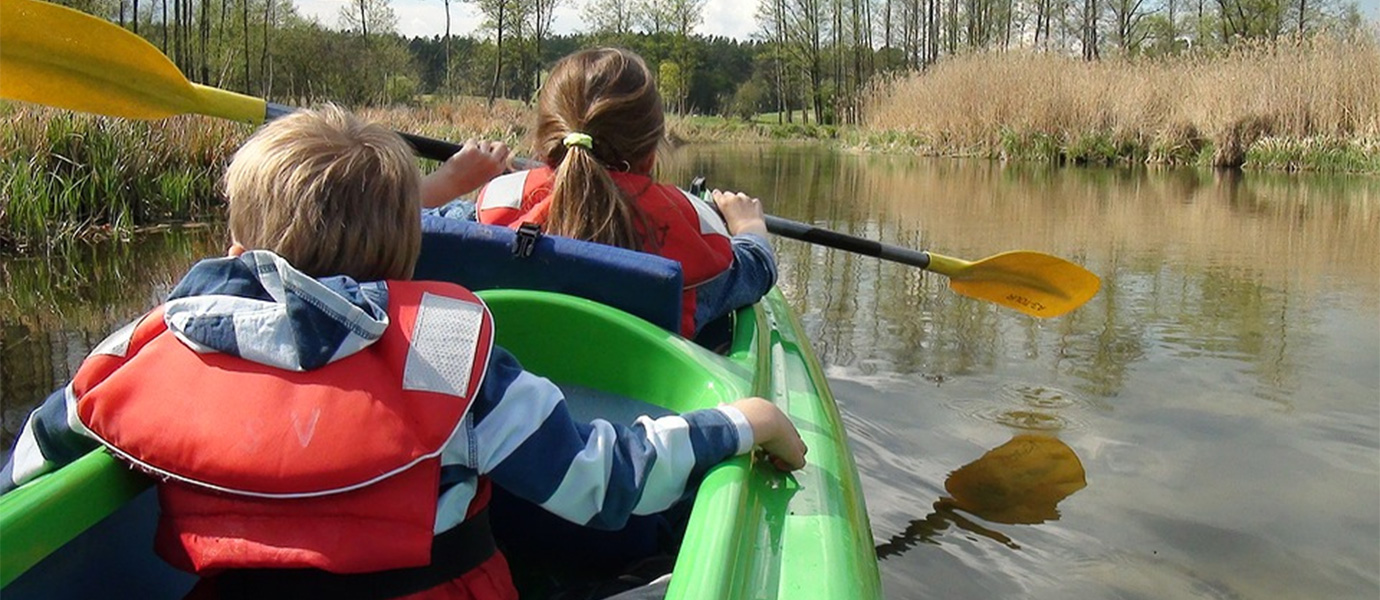
FIELD TRIPS
Students can participate in a guided eco-tour by boat or kayak. These trips give them the chance to see wildlife such as dolphins, pelicans, crabs, migratory birds and turtles. Groups will learn about the local ecosystems, wildlife, and culture of Charleston. A variety of group packages are also available. Can customize packages and offer discounted multi day adventures.
Pricing: $25-$65/ participant, depending on type/length of activity
supports classroom learning in:
Science, Environmental Studies, Biology, Ecology, Anthropology, History, Earth Science, Teamwork/Communication
topics covered:
Ecology, Ecosystems, Marine Biology, Plant and Animal Identification and Adaptations, Coastal Ecology, Wetlands, Estuaries, Salt Marshes, Barrier Islands, Local History
contact info
Phone: 843-795-0330
Email: [email protected]
INFO
ABOUT
Charleston Outdoor Adventures
Charleston Outdoor Adventures provides groups with opportunities to enjoy the water, wildlife, and natural wonders of the state. These include 1.5hr and 2hr marsh kayaking tours, boat eco-tours, in the marsh and tidal creeks surrounding Charleston and Folly Beach.
contact info
Hrs: Daily.
HELPFUL LESSON PLAN(S)
Prepared by FieldTripDirectory.com
Kayaking and Rafting Lesson Plan
FUN FACTS
Ever wonder how a small life jacket can keep your larger body afloat? An object displaces water, which pushes back and causes buoyancy (the more water you displace, the greater the force that pushes back). A life jacket is filled with a very light material, so it can displace a lot of water compared to its weight, meaning it will float high on top of the water and keep your head above the surface. Next time you take a rafting trip, think about the physics involved: learn about how things float, the force and torque from the water and paddle, and the logistics of crossing running water. Most guides can also give you interesting facts about the river in which you are rafting, its history, and its surrounding wilderness. Don’t stop asking questions!
View Lesson Plan>>
FIELD TRIPS
Scouts can participate in a guided eco-tour by boat or kayak. These trips give them the chance to see wildlife such as dolphins, birds, pelicans, crabs, and turtles. Groups will learn about the local ecosystems, wildlife, and culture of Charleston. We can incorporate water sports safety, weather & map reading, team building and leadership skills into kayaking outings. A variety of group packages are also available. Can customize packages and offer discounted multi day adventures.
Pricing: $25-$65/ participant, depending on type/length of activity
supports scout badges in:
Environmental Studies, Ecology, Teamwork/Communication, Local History
topics covered:
Ecology, Ecosystems, Marine Biology, Plant and Animal Identification and Adaptations, Coastal Ecology, Wetlands, Estuaries, Salt Marshes, Barrier Islands, Local History
contact info
Phone: 843-795-0330
Email: [email protected]
INFO
ABOUT
Charleston Outdoor Adventures
Charleston Outdoor Adventures provides groups with opportunities to enjoy the water, wildlife, and natural wonders of the state. These include 1.5hr and 2hr marsh kayaking tours, boat eco-tours, in the marsh and tidal creeks surrounding Charleston and Folly Beach.
contact info
Hrs: Daily.
HELPFUL LESSON PLAN(S)
Prepared by FieldTripDirectory.com
Kayaking and Rafting Lesson Plan
FUN FACTS
Ever wonder how a small life jacket can keep your larger body afloat? An object displaces water, which pushes back and causes buoyancy (the more water you displace, the greater the force that pushes back). A life jacket is filled with a very light material, so it can displace a lot of water compared to its weight, meaning it will float high on top of the water and keep your head above the surface. Next time you take a rafting trip, think about the physics involved: learn about how things float, the force and torque from the water and paddle, and the logistics of crossing running water. Most guides can also give you interesting facts about the river in which you are rafting, its history, and its surrounding wilderness. Don’t stop asking questions!
View Lesson Plan>>
FIELD TRIPS
Students can participate in a guided eco-tour by boat or kayak. These trips give them the chance to see wildlife such as dolphins, pelicans, crabs, migratory birds and turtles. Groups will learn about the local ecosystems, wildlife, and culture of Charleston. A variety of group packages are also available. Can customize packages and offer discounted multi day adventures.
Pricing: $25-$65/ participant, depending on type/length of activity
supports classroom learning in:
Science, Environmental Studies, Biology, Ecology, Anthropology, History, Earth Science, Teamwork/Communication
topics covered:
Ecology, Ecosystems, Marine Biology, Plant and Animal Identification and Adaptations, Coastal Ecology, Wetlands, Estuaries, Salt Marshes, Barrier Islands, Local History.
contact info
Phone: 843-795-0330
Email: [email protected]
INFO
ABOUT
Charleston Outdoor Adventures
Charleston Outdoor Adventures provides groups with opportunities to enjoy the water, wildlife, and natural wonders of the state. These include 1.5hr and 2hr marsh kayaking tours, boat eco-tours, in the marsh and tidal creeks surrounding Charleston and Folly Beach.
contact info
Hrs: Daily.
HELPFUL LESSON PLAN(S)
Prepared by FieldTripDirectory.com
Kayaking and Rafting Lesson Plan
FUN FACTS
Ever wonder how a small life jacket can keep your larger body afloat? An object displaces water, which pushes back and causes buoyancy (the more water you displace, the greater the force that pushes back). A life jacket is filled with a very light material, so it can displace a lot of water compared to its weight, meaning it will float high on top of the water and keep your head above the surface. Next time you take a rafting trip, think about the physics involved: learn about how things float, the force and torque from the water and paddle, and the logistics of crossing running water. Most guides can also give you interesting facts about the river in which you are rafting, its history, and its surrounding wilderness. Don’t stop asking questions!
View Lesson Plan>>
